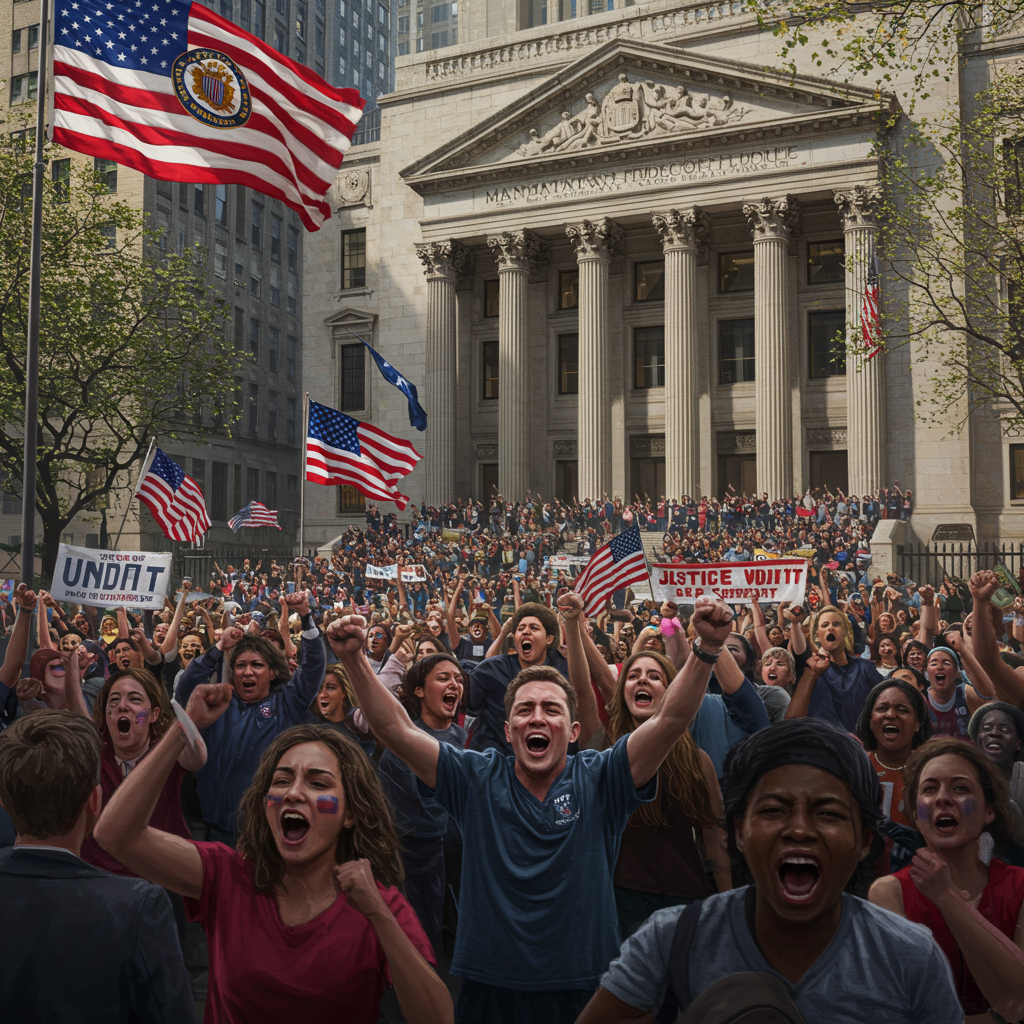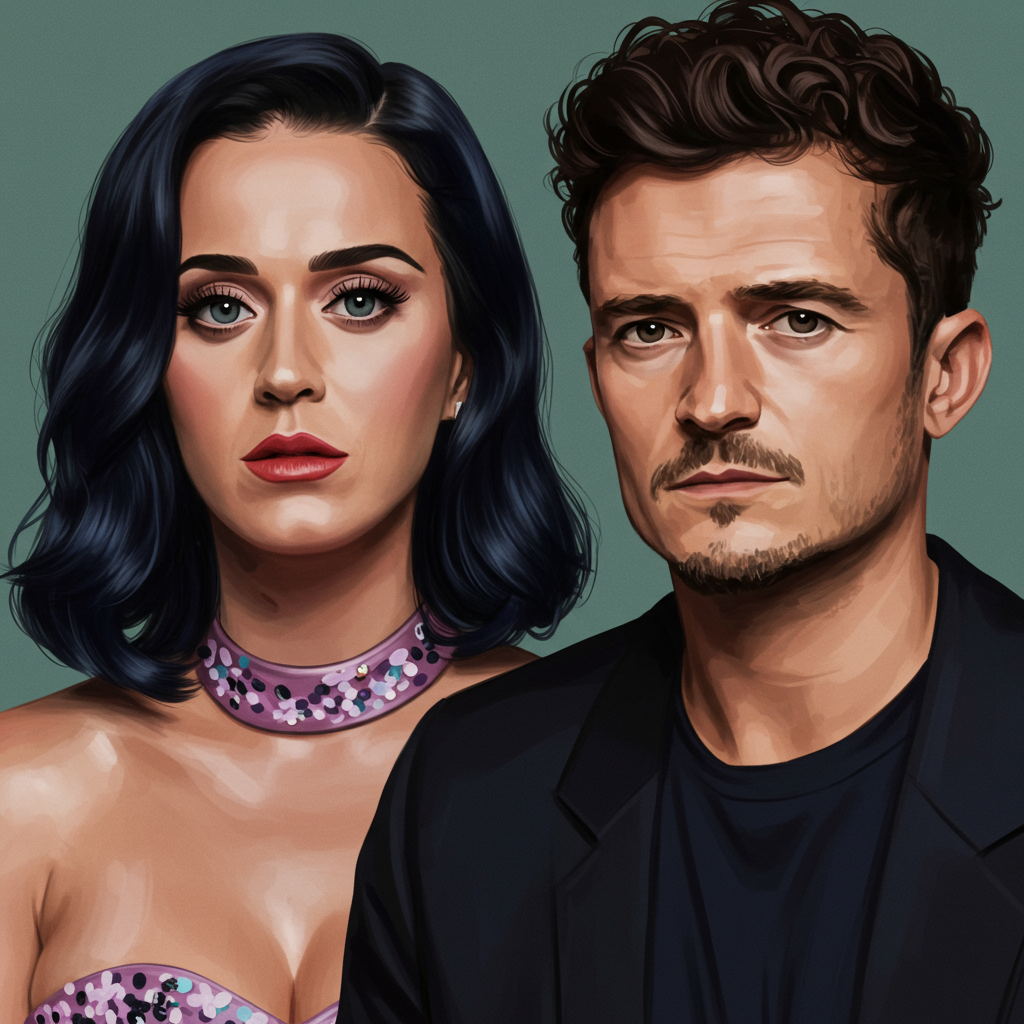The recent acquittal of music mogul Sean “Diddy” combs on the most severe charges in his federal sex trafficking and racketeering trial has sparked intense reactions across the nation. While supporters celebrated outside the Manhattan federal courthouse, spraying baby oil and cheering “Free Puff!”, many sexual assault survivors and advocates voiced profound disappointment. For them, the verdict felt like a significant “step back” for the #MeToo movement, which gained prominence in 2017 following accusations against powerful figures like Harvey Weinstein.
The Verdict: A Mixed Outcome
After seven weeks of detailed testimony from 34 witnesses, a federal jury delivered a split verdict on July 3, 2025. Sean Combs was found not guilty of racketeering conspiracy and sex trafficking charges, the most serious allegations that prosecutors argued stemmed from a decades-long “criminal enterprise” exploiting women. However, the jury did convict him on two counts of Mann Act violations, specifically for transporting male escorts and former girlfriends, including singer Cassie Ventura and a woman identified as “Jane,” across state lines for the purpose of sex.
Inside the courtroom, Combs reportedly fell to his knees in prayer as the verdict was read, while his family and defense attorneys expressed triumph and relief. Defense attorney Marc Agnifilo hailed it as a “great victory for Sean Combs” and for the jury system itself. Conversely, former federal prosecutor Neama Rahmani described the outcome on the most serious charges as “nothing less than a complete and total failure by the prosecution.”
#MeToo’s Reaction: A “Step Back” for Survivors
The mixed verdict resonated deeply with those who have experienced sexual assault and those who advocate on their behalf. Kaja Sokola, a former model who testified in a Harvey Weinstein retrial, found the outcome “heartbreaking.” She reflected on the shift in public perception since the initial wave of the #MeToo movement, where awareness was high. Now, she observed, the narrative seems to be moving toward questioning survivors and suggesting “Women are liars.”
This sentiment was widely echoed online, with many women expressing disappointment in both the verdict and the public display of support for Combs. They conveyed solidarity with witnesses like Cassie Ventura, who testified about alleged sexual abuse and forced encounters. Ventura appeared in court while nine months pregnant, sharing harrowing details that captivated public attention.
The Challenge of Proving Coercion
Expert analysis highlights the significant legal hurdles faced by prosecutors in cases like Combs’s. According to domestic abuse expert Emma Katz, the verdict underscores gaps in public understanding of sexual violence, particularly the complex dynamics of coercion within long-term, intimate relationships. Prosecutors needed to prove Combs used “force, fraud, or coercion” to compel individuals into commercial sex acts. The case heavily relied on the testimony of his former girlfriends, Ventura and “Jane.”
Neama Rahmani explained that the defense successfully argued there was insufficient evidence of coercion related to the sex trafficking charges, even while conceding domestic abuse had occurred (as evidenced by a surveillance video of Combs beating Ventura in 2016). Defense lawyer Teny Geragos is quoted stating, “Domestic violence is not sex trafficking,” highlighting a legal distinction that proved crucial to the jury’s decision on those specific charges. Rahmani suggested the prosecution “botched” this aspect, partly by not preemptively addressing communications from Ventura that the defense later used to suggest active participation rather than coercion.
Power, Trauma, and the Justice System
The outcome of the trial also raised concerns about the impact on survivors contemplating coming forward. Rahmani worried the verdict could have a “chilling effect” on other victims, noting the immense trauma witnesses like Ventura and “Jane” endured by publicly sharing explicit and deeply personal details. Reliving such trauma in court can be devastating, and the fear of not being believed could deter others from seeking justice.
Sociologist Nicole Bedera studies sexual violence and has observed increasing “hostility” toward survivors and the #MeToo movement in recent years. However, she posits that the shift isn’t necessarily about disbelieving victims entirely. Instead, she sees a dangerous trend where the public narrative moves toward suggesting survivors “deserved it.” Bedera warned against this mindset, emphasizing that nothing justifies violence or sexual assault against a partner.
Some survivors felt the Combs verdict reflected a difficult new reality, potentially influenced by other highly publicized trials that they believe negatively impacted public perception of survivors. Caitlin Dulany, who accused Harvey Weinstein and was not part of his criminal trials, told NBC News the Combs verdict was a “painful reminder of how often our voices go unheard in a system that should protect us.” She felt survivors share their truths hoping for justice, but their voices too often “disappear into the void.” UltraViolet, a national women-led justice organization, called the outcome a “deeply disheartened, but unfortunately not surprised” failure of the criminal justice system to protect survivors and hold powerful abusers accountable. They asserted that the legal system makes testifying arduous and emotionally torturous, and that women are “routinely not believed in the courtroom.”
Accountability Beyond the Verdict
Despite being acquitted of the most severe charges, Sean Combs did not emerge from the trial without consequences. He remains held in jail ahead of his sentencing for the two Mann Act violations, which could potentially result in years in prison. Additionally, several civil lawsuits against Combs remain pending, and the explicit details revealed during the trial about his past relationships and alleged behavior have undeniably tarnished his reputation.
For some, even without a conviction on the top charges, the testimonies themselves held significant value. The bravery of witnesses like Cassie Ventura and “Jane” served as powerful reminders to other survivors that they are not alone. Ventura’s attorney, Douglas Wigdor, stated that his client “displayed unquestionable strength” and brought crucial attention to the misconduct involving powerful men that has allegedly persisted for decades. Singer Kesha, who has faced her own legal battles involving abuse allegations against a former producer (which were settled, with denials from the accused), publicly praised Ventura’s courage. In a post on X, she wrote, “Cassie, I believe you. I love you. Your strength is a beacon for every survivor.”
Frequently Asked Questions
What were the main charges Sean “Diddy” Combs was acquitted and convicted of?
Sean “Diddy” Combs was acquitted of the most serious federal charges: sex trafficking and racketeering conspiracy. These charges alleged he ran a “criminal enterprise” that exploited women over many years. However, the jury found him guilty on two counts of violating the Mann Act, which involves transporting individuals across state lines for the purpose of prostitution or illegal sexual activity.
Why is the Combs verdict considered a “step back” for the #MeToo movement by some survivors?
Some sexual assault survivors and advocates view the acquittal on sex trafficking and racketeering as a setback because they feel it demonstrates a failure to hold powerful individuals accountable for alleged abuse. They also believe it reflects a shift in public perception, where survivors’ credibility is increasingly questioned, and the complex dynamics of coercion and control in abusive relationships are not fully understood or believed within the legal system.
Where can I find help or support if I am experiencing domestic violence or sexual assault?
If you or someone you know is facing domestic violence or sexual assault, confidential help is available. You can call the National Domestic Violence hotline at (800) 799-SAFE (7233) or visit their website at www.thehotline.org. Many states also operate their own domestic violence hotlines that can provide local resources and support.
Conclusion
The Sean “Diddy” Combs trial and its outcome highlight the complex intersection of celebrity, power, the justice system, and the ongoing struggle for accountability in cases of alleged abuse. While legal teams debate the nuances of due process and the challenges of proving coercion, the emotional impact on survivors and the broader #MeToo movement remains profound. The mixed verdict underscores the difficulties inherent in navigating these cases, from the harrowing experience of testifying to the fluctuating tides of public opinion. Despite the perceived setbacks by some, the courage of individuals who came forward stands as a testament to the resilience of survivors and a call for continued dialogue and reform to ensure that all voices are heard and believed within the pursuit of justice.


